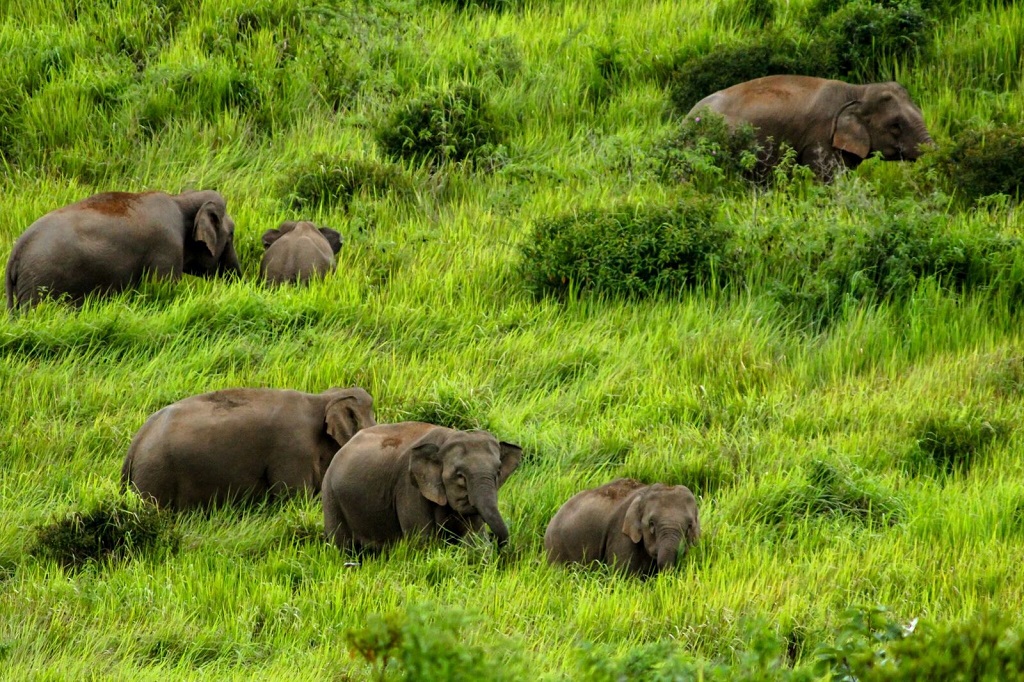Cambodia, Thailand Partner to Strengthen Cross-Border Conservation

Elephants in Khao Yai National Park in Thailand. Photo: iStock.com.
Cambodia and Thailand have agreed to work together to protect wildlife and ecosystems along their borders. The environment ministries of the two Mekong countries signed a memorandum of understanding on 31 January 2018 to jointly strengthen conservation efforts in transboundary forest areas. The countries share a long border and common conservation challenges, such as deforestation and increasing elephant-human conflicts.
The two countries will support each other to improve protected area management and forest connectivity in border areas of the Eastern Forest Complex and Cardamom mountains. Both are important for the conservation of globally threatened and endangered species.
An initiative under the GMS program
The Asian Development Bank-administered Greater Mekong Subregion (GMS) Core Environment Program facilitated the agreement, which will focus on joint research, knowledge sharing, training, and monitoring activities.
The signing ceremony was held on the sidelines of the 5th GMS Environment Ministers’ Meeting in Chiang Mai, Thailand.
The Core Environment Program is the flagship environmental cooperation initiative of the GMS Economic Cooperation Program and works with the six GMS countries to strengthen policy and planning systems, biodiversity conservation, and climate resilience. Launched in 2006, the program has helped create 2.6 million hectares of biodiversity corridors and reduced poverty for more than 30,000 rural people in seven transboundary landscapes.
A new environment agenda
In Chiang Mai, the environment ministers of the six GMS countries endorsed a new strategic framework and action plan for the Core Environment Program for 2018 to 2022. The 5-year environment agenda includes more than $540 million worth of priority projects to spur green investments and increase environmental cooperation to help the subregion achieve sustainable growth.
The GMS countries are Cambodia, the People’s Republic of China (specifically Yunnan Province and Guangxi Zhuang Autonomous Region), Lao People’s Democratic Republic, Myanmar, Thailand, and Viet Nam.
Last Updated: 16 February 2018
